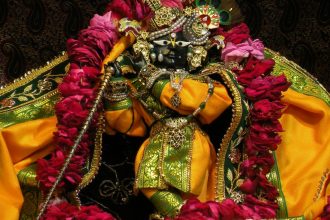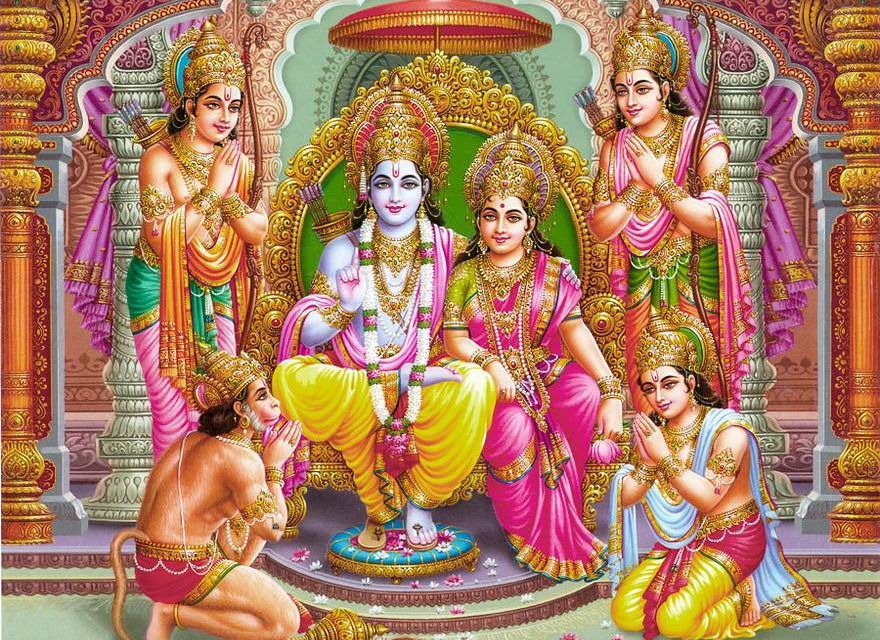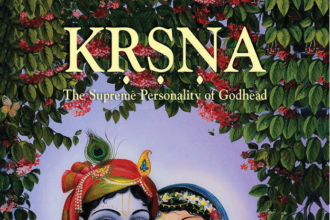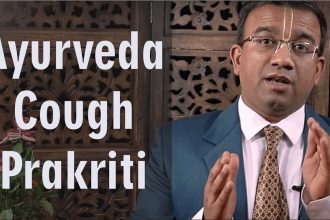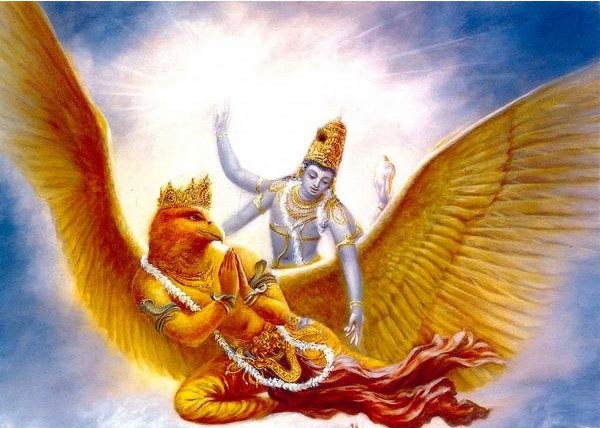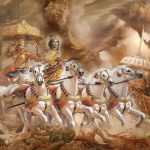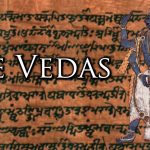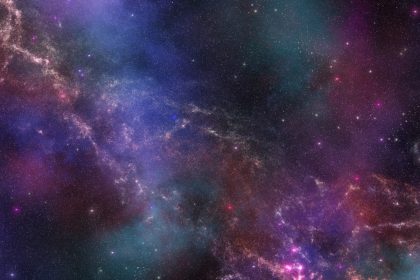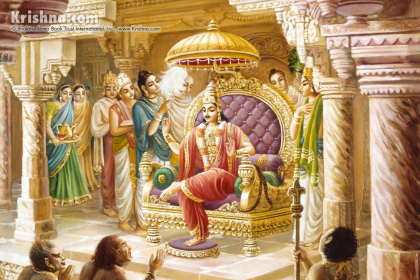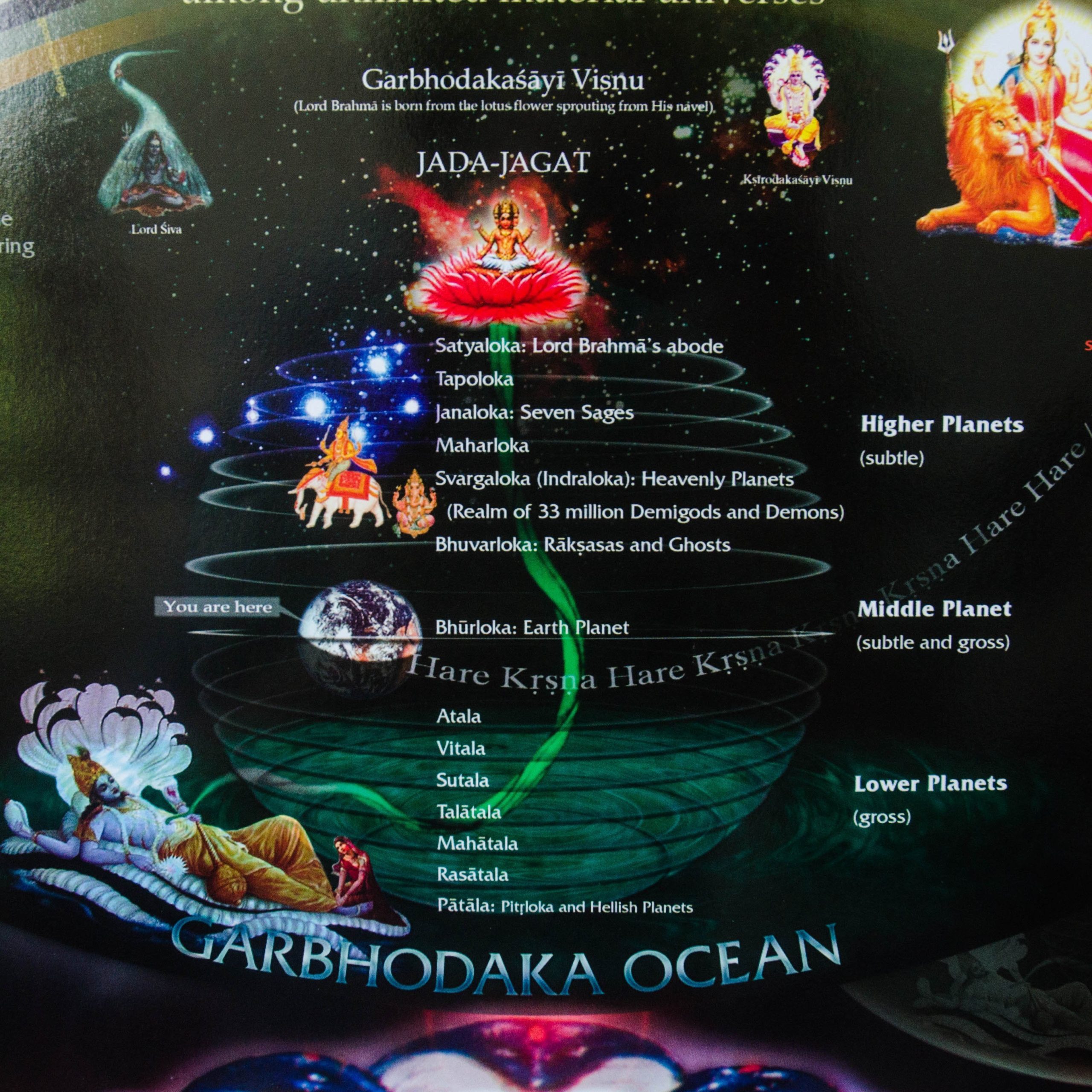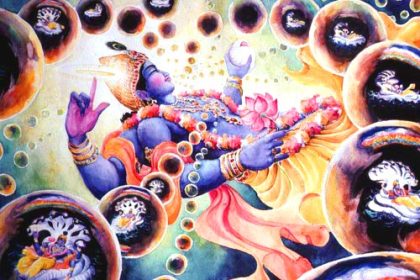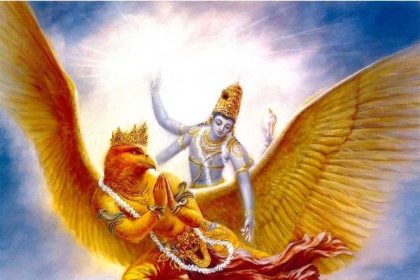Suta Gosvami said, “This is how Rudra and Brahma heard the Garuda Purana from Lord Vishnu. I shall now narrate it to you in this sacred forest of Naimisha. This great literature, when heard with attention and respect, bestows all desirable objectives of life. Bowing down to Shrila Vyasadeva, I shall now begin my narration. O Shaunaka, kindly listen with rapt attention.”
Thereafter, Lord Shiva requested Lord Janardana to describe in detail the process of creation.
A brief summary of the Lord’s explanation is herein given: The first creation is that of mahat, which is a transformation of Brahman. The second creation is called bhuta-sarga, or the creation of the material elements. The third creation is called aindriyaka-sarga, or the creation of the sense organs. All together, these three are called prakrid-sarga. The fourth creation is called mukhya-sarga, wherein the non-moving entities are created. The fifth creation is that of the lower species of life and it is known as tiryaksrotas. The creation of super-human beings is the sixth, and it is known as urdhvasrotas. The creation of human beings is the seventh, and it is known as arvaksrtas. The eighth creation is known as anugraha-sarga. These five constitute the prakritya stage of creation. The ninth creation is called kaumara.
While engaged in creation, the demons came out from Lord Brahma’s genitals, infused with the mode of ignorance, or tamas. Lord Brahma then cast off that tamasic body and it became the night. The Yakshas and demons found pleasure in that body. Then, from the mouth of Brahma, the demigods were born, infused with the mode of goodness, or sattva. When Brahma cast off that body, it became the day. Because of this, the demons become more powerful at night and the demigods are more powerful during the day. Thereafter, when the forefathers were created, the body that was cast off became the twilight.
When human beings evolved, they became infused with the mode of passion, or rajas. When Brahma cast off that body, it became the dawn. From passion—hunger, darkness and anger evolved. From Brahma’s head came the brahmanas. From his arms— the kshatriyas. From his thighs were born the vaishyas and from his feet—the shudras.
Brahmanas can attain Brahmaloka, kshatriyas can attain Indra’s planet, vaishyas can attain the world of the Maruts, and shudras can attain the realm of the Gandharvas. Staunch brahmacharies can attain Brahmaloka, householders who are steady in the performance of their duties can attain the realm of the Prajapatis. Vanaprasthas can attain the world of the seven rishis and sannyasis can attain liberation in Brahman.
After these creations, Lord Brahma begot his mental sons— Dharma, Rudra, Manu, Sanaka, Sanatana, Bhrigu, Sanat-kumara, Ruchi, Shraddha, Marichi, Atri, Angiras, Pulastya, Pulaha, Kratu, Vasishtha, Narada, and the seven classes of forefathers (Barhishads, Agnishvattas, Kravyadas, Ajyapas, Sukalins, Upahutas, and Dipyas).
From his right thumb, Lord Brahma created Daksha, and from his left thumb, he created Daksha’s wife. Daksha begot many daughters who were given in marriage to Brahma’s sons. Sati was given to Rudra. Rudra’s sons were numerous and very powerful. He gave his daughter, Khyati, to Bhrigu Muni, who begot in her Dhatri, Vidhatri and Shri, the wife of Lord Narayana.
From Shri, the Lord begot Bala and Unmada. Manu’s daughters, Ayati and Niyati, became the wives of Dhatri and Vidhatri, and their two sons were Prana and Mrikandu, whose son was Markandeya Rishi. Anasuya, the wife of Atri Muni, gave birth to Soma, Durvasa, and Dattatreya. Sumati, the wife of Kratu, gave birth to the sixty thousand Valakhilyas, who were the size of a thumb.
Svayambhuva Manu and his wife, Shatarupa, had two sons; Priyavrata and Uttanapada, and three daughters; Prasuti, Akuti, and Devahuti.
Prasuti was given in marriage to Daksha, and they had twenty-four excellent daughters. They were Shraddha (faith), Lakshmi (wealth), Dhriti (fortitude), Tushti ( satisfaction), Pushti ( nourishment), Medha (intelligence), Kriya (action), Buddhi (intelligence), Lajja ( bashfulness), Vapu (beauty), Shanti (peacefulness), Riddhi (prosperity), Kirti (fame), Khyati (praise), Sati (chastity), Sambhuti ( production), Smriti ( memory), Priti (affection), Rshama (forgiveness), Sannati (obeisances), Anasuya (non-enviousness), Urja (energy), Svaha and Svadha (exclamations uttered while offering oblations).
Shraddha gave birth to Kama (desire). Lakshmi gave birth to Darpa (pride). Dhriti gave birth to Niyama (restraint). Tushti gave birth to Santosha (contentment). Pushti gave birth to Lobha (greed). Medha gave birth to Shruta (knowledge). Kriya gave birth to three sons Danda (punishment), Laya (adherence), and Vinaya (mild and humble). Buddhi gave birth to Bodha (enlightenment). Lajja gave birth to Vinaya (humility). Vapu gave birth to Vyavasaya (endeavor). Shanti gave birth to Kshema (welfare). Riddhi gave birth to Sukha (happiness) and Kirti gave birth to Yashas (fame). Kama’s wife was Rati(love) and their son was Harsha (joy). The Garuda Purana goes on to list innumerable descendants of Daksha’s daughters. Thereafter, during the course of a lengthy description of procedures for worshiping Lord Vishnu, Lord Rudra asked, “My dear Lord, what is to be recited by a man so that he can become liberated from the terrible ocean of material existence? O Janardana, please tell me the great recitation that brings all auspiciousness.”
Lord Hari said, “By reciting Lord Vishnu’s one thousand holy names, a man becomes freed from all sins.


